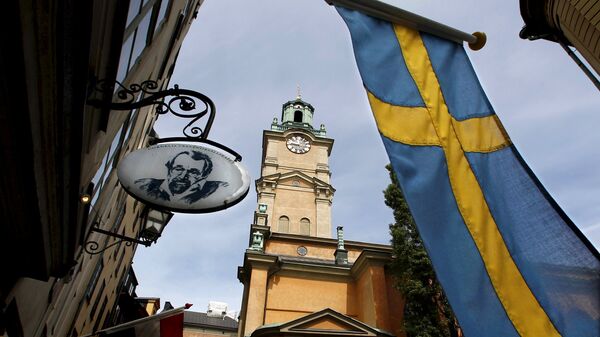A majority of Swedes aged 16-25 are skeptical about the traditional format of democratic governance and instead support the notion that the country should be ruled by a team of experts rather than politicians, a new survey by company Kairos Future has indicated.
A total of 54 percent of 6,000 young people surveyed said letting pundits and not the government and parliament decide what's best for the country is a "very good" or "quite good" proposal. Incidentally, those who support expert leadership belong to various social strata and have different political backgrounds ranging from left to right, the news outlet ETC reported.
Furthermore, a quarter of those aged 16-25 consider it a good idea to let a "lone strong leader rule with no regard for parliament or elections." A majority of people in the same age group, 51 percent, believe that voting in general elections shouldn't be considered a right for those who "don't know anything about politics."
READ MORE: Swedish Politician Slams Assimilation, Calls for More Afro-Swedes in Power
Ludvig Beckman, a professor of political science at the Institute for Future Studies, has voiced his concern over the recent development.
"Those who argue that knowledge is a prerequisite for voting rights have traditionally sought to exclude groups, such as workers or blacks, from democracy," Beckman argued, suggesting that the idea of basing voting rights on enlightenment was "impractical," as all people have different views on what skills are relevant.
Other experts have attributed the development to youngsters becoming increasingly disenchanted with the current political situation.
"I think young people have a feeling that politicians are incapable of solving the problems we are facing, be it climate change or migration. It's easy to think that politicians just sit in their sandbox fighting with each other, and that we therefore need experts to take over," Åsa Knaggård, senior lecturer in political science at Lund University, said. "I never thought I would have to defend democracy anytime in my lifetime. But today we have to be alert and watchful," she added.
READ MORE: Swedish Party Suggests More Feminism to Stave Off 'Nationalist Onslaught'
Democracy researcher Katharina Berndt Rasmussen at the Institute for Future Studies argued that supporters of "expert rule" mistakenly take it for granted that there is a single vision for how society should be built, comparing the process of government to "renting carpenters in order to build a house." There are major conflicts of interest that experts cannot solve, she pointed out.
Stefan Löfven, Sweden's current prime minister, previously worked as a welder before embarking on a career of a trade unionist.
This year, Sweden's political democracy is celebrating 100 years. The question is whether it will be able to hold down the fort against the current trend.
READ MORE: Swedish Liberals Want to Dissolve Their Country in European Superstate




